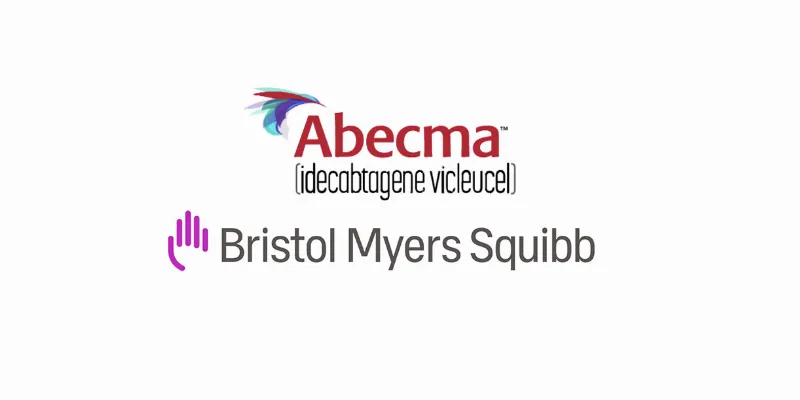New Hope in the Fight Against Multiple Myeloma: Abecma Shows Promising Results

12 December 2023
BMS announced that Abecma, a CAR T cell therapy, has shown remarkable efficacy in treating relapsed and refractory multiple myeloma at ASH 2023. The KarMMa-3 study revealed a 51% reduction in the risk of disease progression or death, with Abecma outperforming standard regimens. This development is crucial as it offers a transformative treatment option, providing hope for longer survival.
In the ongoing battle against multiple myeloma, recent findings from the KarMMa-3 study, presented at the 65th American Society of Hematology Annual Meeting, shed light on a revolutionary treatment - Abecma (idecabtagene vicleucel), a pioneering CAR T cell therapy. Developed by Bristol Myers Squibb and 2Seventy Bio, Abecma shows remarkable efficacy in treating relapsed and refractory multiple myeloma.
Abecma's Marked Efficacy
Over 30 months, Abecma consistently showed superior efficacy in multiple myeloma treatment, reducing disease progression or death risk by 51% and extending median PFS to 13.8 months, compared to 4.4 months with standard regimens. It significantly improved response rates, achieving a 44% complete response rate, markedly higher than the 5% with standard treatments, and demonstrated a remarkable 77% complete response rate in newly-diagnosed cases.
“With longer follow-up from the KarMMa-3 study, we continue to see the significant clinical benefit that Abecma delivers for triple-class exposed multiple myeloma, illustrating the potential of using Abecma for long-term disease control and remission when used earlier in the treatment paradigm,” said Dr. Paula Rodriguez-Otero, Department of Hematology, Clinica Universidad de Navarra.
Breakthrough Results in Prolonging Survival
The KarMMa-3 study, a pivotal Phase 3 trial, rigorously compared Abecma with standard combination regimens in adults who had undergone two to four previous lines of therapy. These patients, already exposed to an immunomodulatory agent, a proteasome inhibitor, and an anti-CD38 monoclonal antibody, faced bleak prospects due to their refractory nature to the last regimen. The results, however, are nothing short of groundbreaking.
“As the first-in-class anti-BCMA CAR T cell therapy, we have long believed in the clinical value Abecma can deliver across the treatment paradigm for multiple myeloma, transforming outcomes for patients with a relentless disease and continued unmet need. These longer-term results from the KarMMa-3 trial clearly demonstrate the potential of Abecma to be an important treatment option for multiple myeloma,” said Anne Kerber, senior vice president, Head of Hematology and Cell Therapy, Bristol Myers Squibb.
Safety Profile: Consistent and Predictable
The safety of Abecma, a critical aspect of any new treatment, has been well-established. The occurrences of cytokine release syndrome and neurotoxicity, common concerns with CAR T therapies, were mostly low-grade and predictable. This consistent safety profile positions Abecma as a viable option for broader use in treating multiple myeloma.
Regulatory Approvals and Expanded Use
With its recent approval in Japan and ongoing reviews by the US FDA and EMA, Abecma is poised to become a standard in multiple myeloma treatment. Its impressive results in the KarMMa-3 study have paved the way for its use in earlier lines of therapy, offering a new lifeline to patients who have exhausted other options.
The journey of multiple myeloma treatment is witnessing a pivotal shift with the advent of Abecma. This CAR T cell therapy not only promises improved survival rates but also opens doors to long-term disease control and remission.
Results from Extended Follow-up for Cohort 2c of the KarMMa-2 Study
The KarMMa-2 study's extended follow-up for Cohort 2c showed promising results for Abecma in treating multiple myeloma post-autologous stem cell transplantation. With a median follow-up of 39.4 months, the overall response rate (ORR) was 87.1%, and the complete response (CR) rate was 77.4%. Median duration of response, progression-free survival (PFS), and overall survival (OS) were not reached, with all patients surviving at follow-up. Abecma's safety profile remained consistent, with no severe cytokine release syndrome (CRS) reported. FDA-approved for relapsed or refractory multiple myeloma, Abecma is also recognized in the EU, Switzerland, Canada, the UK, and Israel.











Comments
No Comments Yet!